Scientific lectures and colloquia
The Faculty of Informatics regularly invites distinguished foreign and domestic
scientists to give plenary lectures at the weekly
Informatics Colloquium (with a tradition dating back to 1997) and on additional important occasions.
The lectures are usually given at the Faculty of Informatics, in lecture room D2,
unless specified otherwise. See also the FI building tour.
Since the year 2018, moreover, Masaryk University has launched a new distinguished Seminar Series in Mathematics, Physics and Computer Science. This series brings to our university world top scientific speakers, selected and invited jointly by the Faculty of Informatics and the Faculty of Science. Lectures of the Seminar Series are given at the Mendel Museum in Brno.
2024
-
30. 4. 2024, 14:30, A217
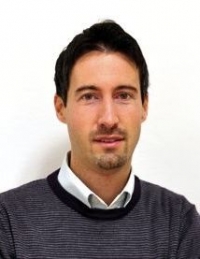
Bruno Rossi, PhD
FI MU
Software Reliability Engineering: from Software Reliability Models to Software Resilience
Lecture Description
In this habilitation lecture, we will be looking at a historical overview of software reliability engineering. While reliability is a key quality of software systems, in recent years there has been a focus shift towards software resilience. In this lecture, we will delve into three main areas. First, we will discuss software reliability growth models, historical models to predict software failures based on testing efforts. Next, we will discuss software quality models proposed over time to control and reduce software defects, leading to fewer failures. Finally, we will explore current trends for building resilient software systems capable of withstanding failures and providing self-healing capabilities.
Public talk within a Habilitation procedure
-
11. 4. 2023, 13:00, B517
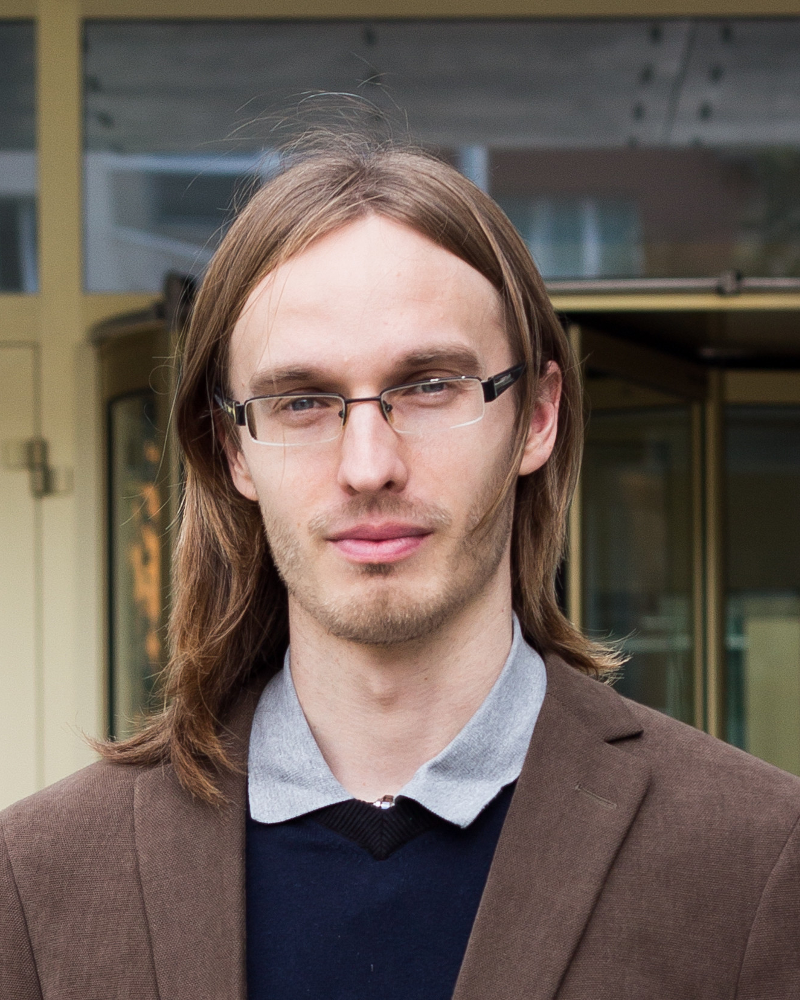
RNDr. Jiří Filipovič, Ph.D.
FI MU
What can we expect from code performance optimization?
Lecture Description
In this talk, I will demonstrate the importance of code transformations focusing on decreasing its runtime by better hardware utilization. We start with the naive C implementation of an algorithm used in scientific computing, which does not take into account the properties of modern hardware. Then, I introduce some features of modern processors (caches, vector instructions, limitations of multithreading) and make changes in the code to reflect those features. Finally, I will show how to transform the code to GPUs and get even more performance, presenting our work pushing the state-of-the-art.
Public talk within a Habilitation procedure
2023
-
2. 5. 2023, 14:30, A217
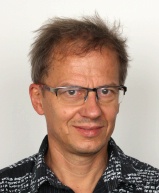
Ing. Matej Lexa, Ph.D.
FI MU
How sequence repeats in genomes complicate life - solutions out in the wild, in biology and bioinformatics
Lecture Description
The fact that genomes of higher organisms contain thousands, or even millions of copies of essentially the same elements is increasingly becoming a topic in modern biology. Their presence has initially been underrated, the sequences being at times dismissed as “junk DNA”. While everyone, even the biggest skeptics had to acknowledge their presence and deal with them in the age of genomics and massive DNA sequencing, the organisms themselves have been evolving for hundreds of millions of years to deal with what was at the same time a curse and a blessing. Some repetitive sequences served as an evolutionary building material for what later became crucial components of living systems, such as chromosome structure, vivipary, molecules of the vertebrate immune system, or gene regulatory molecules and sequences. Others were silenced to form less active domains of the cell nucleus. The branch of bioinformatics that studies DNA sequence analysis and methods for genome assembly and annotation has been particularly affected by repetitive sequences. Almost all of the missing patches in published reference genomes today are due to the presence of repeated sequences and the difficulty of assembling them properly from genomic data. Even when identified, the sequence repeats are notoriously difficult to classify and organize for further use or visualization. In my talk, I will present some of the historical and biological context for the most interesting research on repeats in genomics and bioinformatics. I will also present some of my own research in this area, culminating in the development of computational tools (TE-greedy nester or HiC-TE) to better deal with the complexity of repetitive sequences.
Public talk within a Habilitation procedure
-
11. 4. 2023, 14:30, A217
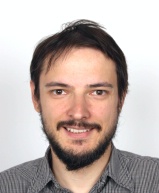
RNDr. Petr Novotný, Ph.D.
FI MU
Static Analysis of Termination and Safety Properties in Probabilistic Programs
Lecture Description
In this talk, we will explore the intersection of formal methods and probabilistic programing, focusing on proving temporal properties of probabilistic programs. To establish the context for our investigation, we will begin with a brief historical overview of termination proving for non-probabilistic programs, tracing its roots back to the foundational work of Turing. We will then introduce probabilistic programs and discuss their growing range of applications in computer science, ranging from computational finance and cybersecurity to various areas of machine learning and AI. The core of the talk will be a presentation of the speaker's research contributions to formal analysis of probabilistic programs. These revolve around the usage of martingales, a powerful concept from probability theory. We will present the contributions within a broader context, highlighting the challenges that differentiate the probabilistic setting from the non-probabilistic one. Finally, we will explore potential future directions for formal reasoning about probabilistic programs, such as the application of program analysis techniques for better understanding of models employed in machine learning.
Public talk within a Habilitation procedure
-
14. 2. 2023, 14:30, A217
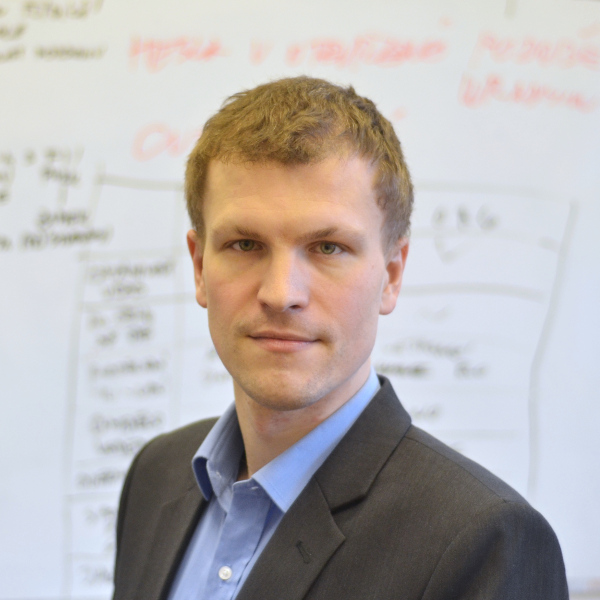
RNDr. Jan Vykopal, Ph.D.
FI MU
Interactive Environments for Cybersecurity Training
Lecture Description
Cybersecurity training environments enable students to complete hands-on tasks involving computer systems and networks. The design and features of the environments play a crucial role in training delivery and efficiency. In this talk, I will present the challenges of designing and using learning environments, our research effort, and practical experience in this area. In particular, I will introduce two open-source environments, KYPO Cyber Range Platform and Cyber Sandbox Creator, and their use cases for efficient student training and assessment.
Public talk within a Habilitation procedure
2022
-
3. 5. 2022, 14:00, D2, online (live stream)
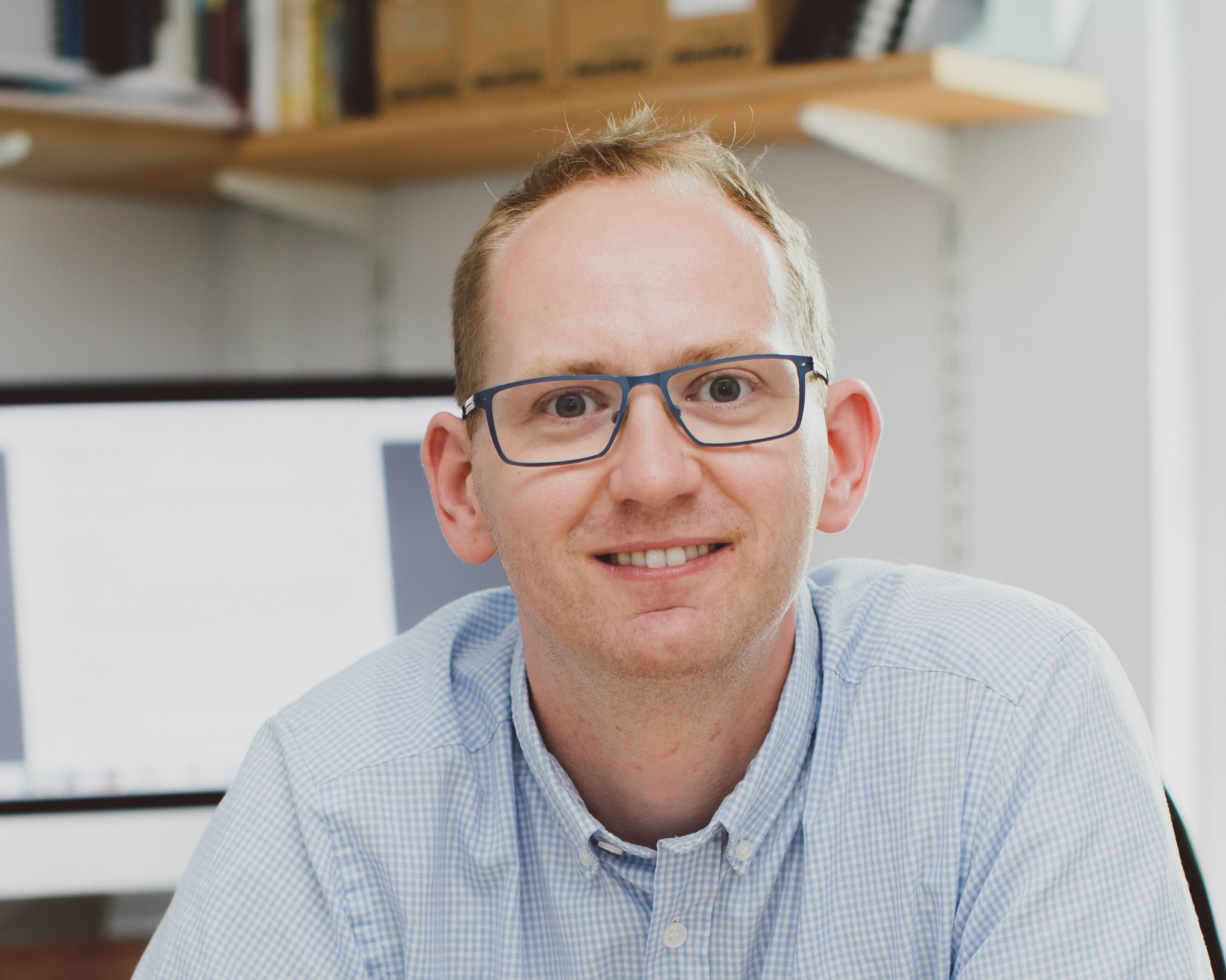
Stanislav Živný, Doctor of Philosophy
University of Oxford, UK
Power of convex relaxations in discrete optimisation
Lecture Description
Which discrete optimisation problems can be solved efficiently and why? My research is concerned with designing efficient algorithms and finding the exact borderline of tractability. For a broad class of computational problems, known as constraint satisfaction problems (CSPs), we now have a good understanding of this fundamental question. In this talk I'll survey my work on the power of convex relaxations for constraint satisfaction problems.
The live stream will be broadcasted here.
Public talk within a Professorship procedure
-
21. 4. 2022, 16:30, Mendel Museum, Refectory of Augustinian Abbey (Mendlovo nám. 1a, Brno)
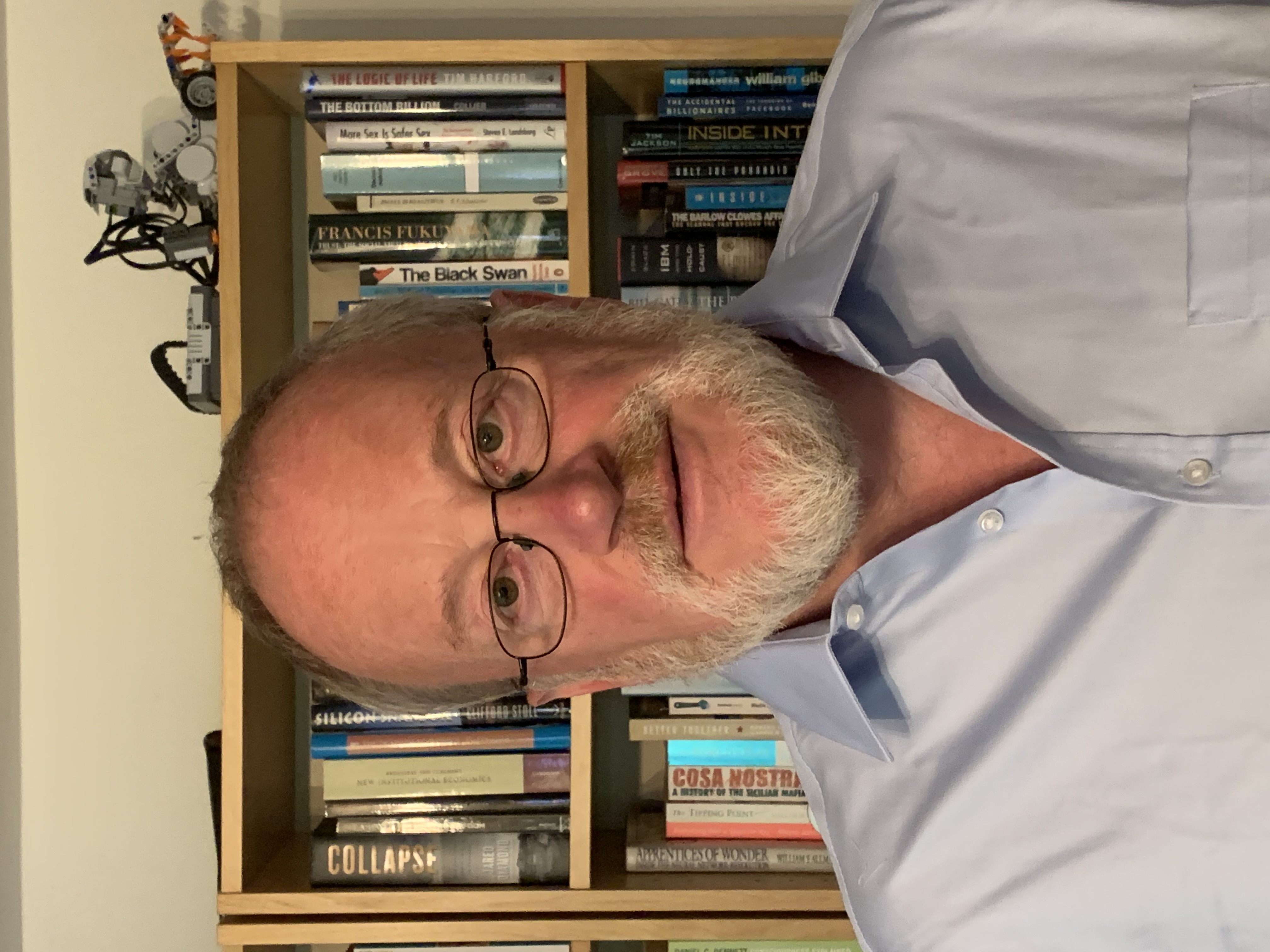
Prof. Ross J. Anderson
Professor of Security Engineering at the Computer Laboratory at Cambridge University, and a Fellow of the Churchill College, Cambridge
The Sustainability of Safety, Security and Privacy
MU Seminar Series, in connection with a Honorary Doctorate Awards CeremonyLecture Description
Now that we’re putting software and network connections into durable safety-critical goods such as cars and medical devices, we’ll have to patch vulnerabilities, as we do with phones and laptops. But we can't let vendors stop patching after three years! So last year, the EU passed Directive 2019/771, which gives the right to software updates for goods with digital elements, for the time period the consumer might reasonably expect. In my talk, I'll describe the background, including a study we did for the European Commission in 2016, and the likely future effects. As sustainable safety, security and privacy become a legal mandate, this will create real tension with existing business models and supply chains. It will also pose a grand challenge for computer scientists. What sort of tools and methodologies should you use to write software for a car that will go on sale in 2023, if you have to support security patches and safety upgrades till 2043?
-
29. 3. 2022, 14:00, D2, online (live stream)
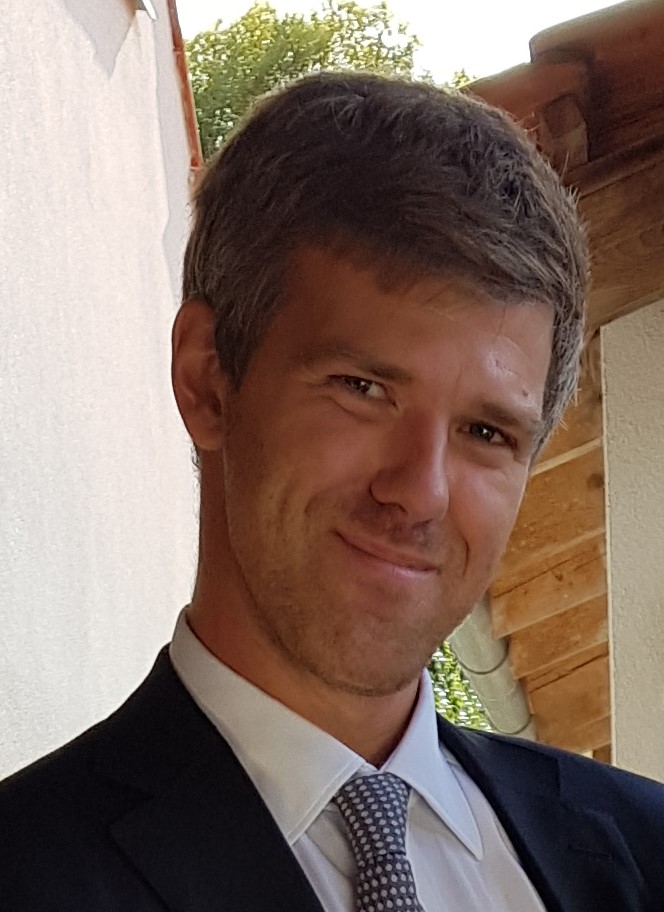
doc. Dr.rer.nat. RNDr. Mgr. Bc. Jan Křetínský, Ph.D.
TUM
A story of checking LTL models
Lecture Description
Linear temporal logic (LTL) belongs to the most popular formalisms for specification of dynamic systems. Assuring that a safety-critical system behaves correctly can thus be formalized as the problem of LTL model checking, i.e., deciding whether an LTL formula is satisfied by the given system. Both the satisfaction definition and the techniques used in model checking differ depending on the type of the system. Nevertheless, a surprising commonality of most of the solutions is resorting to automata theory. In this talk, we survey the LTL model checking problems, focusing on the automata-theoretic solution approach. In particular, we highlight some of the recent advances for more complex systems, where the notion of determinism of automata plays a crucial role.
The live stream will be broadcasted here.
Public talk within a Professorship procedure
-
15. 3. 2022, 14:00, D2, online (live stream)
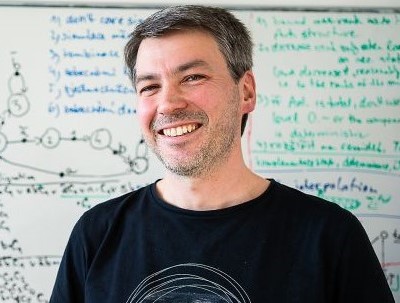
doc.RNDr. Jan Strejček, Ph.D.
FI MU
Binary decision diagrams for deciding satisfiability of bitvector formulae and DQBF
Lecture Description
Many efficient methods and tools for analysis or synthesis of computer systems rely on satisfiability solvers for formulae of bitvector theory. We explain basics of this theory and sketch some applications of the corresponding satisfiability solvers. Then we recall the concept of binary decision diagrams (BDDs) and explain how BDDs can be used to decide satisfiability of bitvector formulae. Further, we present some techniques that improve the performance of our BDD-based satisfiability solver Q3B. Finally, we briefly present another BDD-based solver DQBDD, which can solves satisfiability of quantified Boolean formulas with explicit dependencies (DQBF).
The live stream will be broadcasted here.
Public talk within a Professorship procedure
-
22. 2. 2022, 14:00, D2, online (live stream)
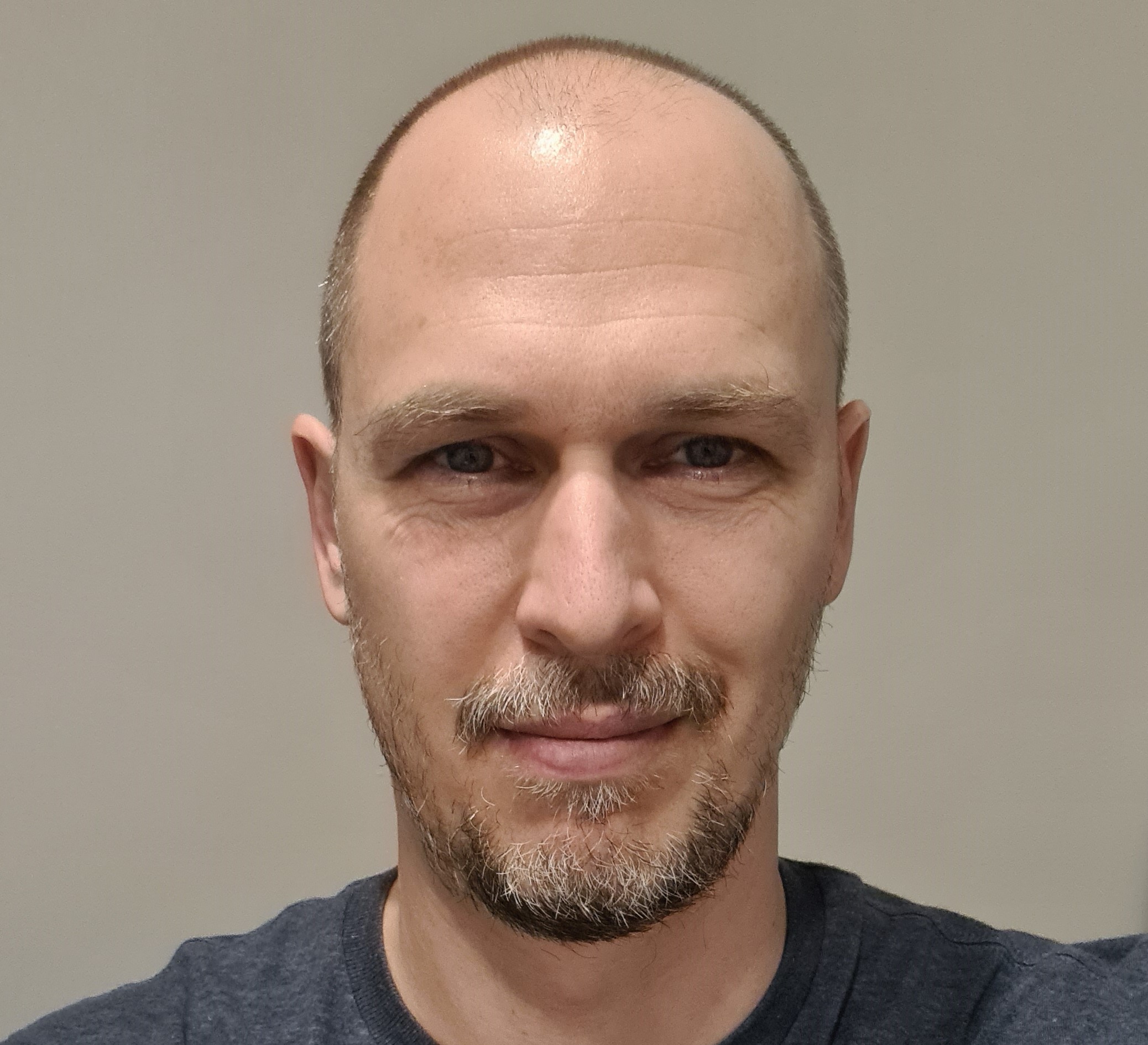
Mgr. Bc. Vít Nováček, PhD
FI MU
A Journey in Biomedical Discovery Informatics: From Ontology Learning to Knowledge Graph Embeddings
Lecture Description
The talk will offer a crash course in biomedical discovery informatics. By and large, discovery informatics is a research discipline that addresses the information overload problem in science. More specifically, discovery informatics tries to come up with efficient ways of acquiring, integrating, organising, augmenting and utilising information and knowledge from data sets that are typically large, heterogeneous, poorly structured, fast-evolving, unreliable—or, in other words, realistic. The information overload is arguably relevant to virtually any human activity these days. However, it is particularly pertinent to life sciences. This motivates the specific instances of the information overload problem that will be addressed in the talk: 1) The vast breadth and depth of published life science articles that can hardly be utilised in a focused and exhaustive manner. 2) The largely untapped potential of networked biomedical data for making semi-automated discoveries. The presented approach to tackling the first challenge is based on advances in ontology learning from text. The other group of approaches to be introduced addresses the second challenge by means of relational machine learning, applied to link prediction in networked biomedical data. The talk will then conclude with an overview of two ongoing projects that explore clinical applications of the presented techniques.
The live stream will be broadcasted here.
Public talk within a Habilitation procedure
2021
-
15. 10. 2021, 12:00, A218, online (live stream)
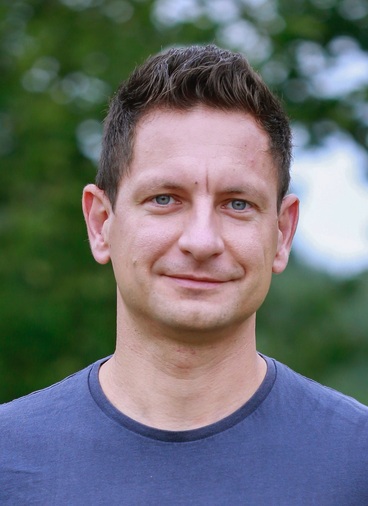
RNDr. Jan Sedmidubský, Ph.D.
FI MU
Action Recognition in Human Motion Data
Lecture Description
Human motion can be digitized using various capturing technologies into a discrete sequence of 3D skeleton configurations. Recognizing the type of performed actions in such spatio-temporal data is a desired task for a wide range of application domains. However, solving this task is difficult as the actions of the same type can be performed by different subjects in various styles, speeds, and initial body postures. In this talk, we will present fundamental action-recognition principles based on nearest-neighbor and deep-learning classifiers and discuss their advantages and disadvantages.
The live stream will be broadcasted here.
Public talk within a Habilitation procedure
-
26. 3. 2021, 10:00, online (live stream)
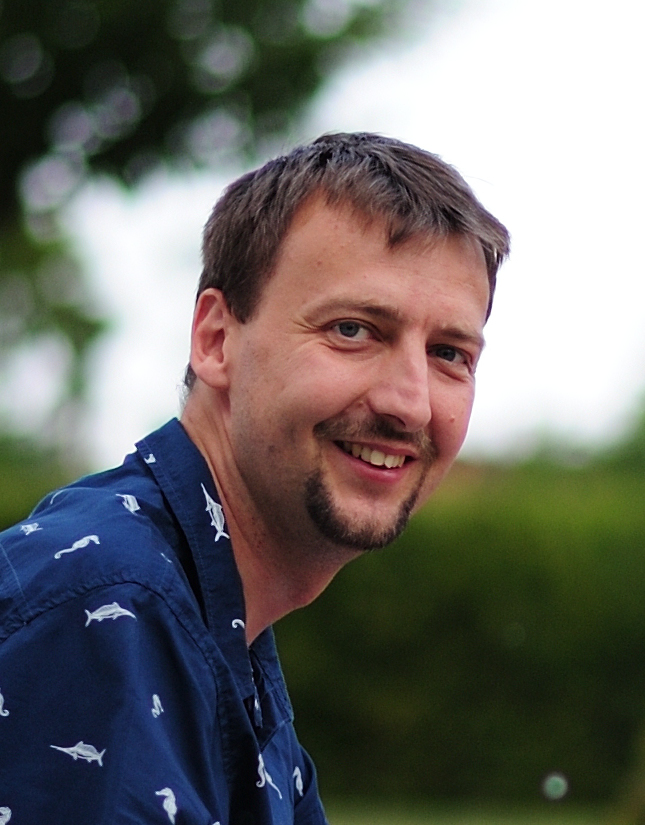
RNDr. Tomáš Masopust, Ph.D., DSc.
FI MU
Expressivity and complexity of partially ordered automata
Lecture Description
We discuss the expressivity of finite automata whose transition diagram contains no nontrivial cycles, show their relationship to the Straubing-Therien concatenation hierarchy, and discuss the complexity of related problems, including universality, inclusion, and equivalence.
The live stream will be broadcasted here.
Public talk within a Habilitation procedure
Past lectures
2020
-
24. 11. 2020, 14:00, online (live stream)
RNDr. Martin Maška, Ph.D.
FI MU
The Fundamentals of Cell Tracking
Lecture Description
Cell tracking plays an instrumental role in understanding a variety of complex biological processes. Given a time-lapse sequence of motile cells recorded, the task consists in identifying and segmenting individual cell instances and in establishing their temporal relationships. Subsequent downstream analyses of spatiotemporal cell lineages help decipher migratory patterns, morphological changes, and mutual interactions and relationships of observed cells. The advances in microscopy and fluorescent reporters have facilitated observations of cells at unprecedented spatiotemporal resolutions, at the expense of recording large amounts of bioimage data, calling for reliable and automatic image analysis methods to fully substitute for subjective, highly error-prone, and extremely laborious manual analyses. In this talk, the task of cell tracking and its underlying challenges will be surveyed and typical paradigms followed when addressing these challenges will be discussed.
The live stream will be broadcasted here.
Public talk within a Habilitation procedure
-
19. 3. 2020, 13:00, Mendel Museum, Refectory of Augustinian Abbey (Mendlovo nám. 1a, Brno)
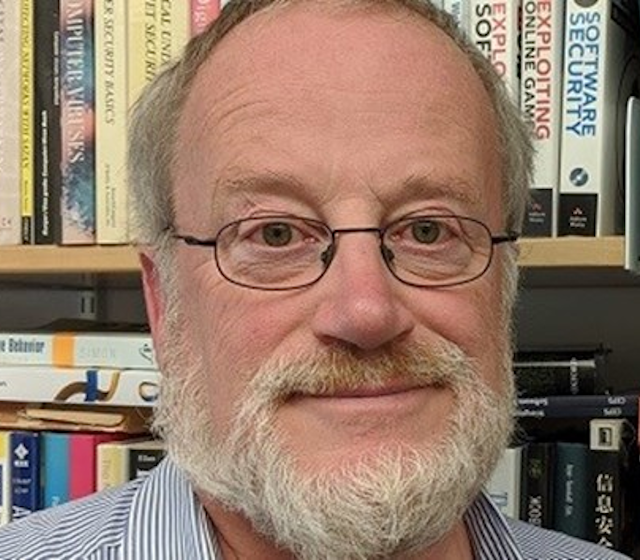
Prof. Ross J. Anderson
Professor of Security Engineering at the Computer Laboratory at Cambridge University, and a Fellow of the Churchill College, Cambridge
The Sustainability of Safety, Security and Privacy
Lecture Description
Now that we’re putting software and network connections into durable safety-critical goods such as cars and medical devices, we’ll have to patch vulnerabilities, as we do with phones and laptops. But we can't let vendors stop patching after three years! So last year, the EU passed Directive 2019/771, which gives the right to software updates for goods with digital elements, for the time period the consumer might reasonably expect. In my talk, I'll describe the background, including a study we did for the European Commission in 2016, and the likely future effects. As sustainable safety, security and privacy become a legal mandate, this will create real tension with existing business models and supply chains. It will also pose a grand challenge for computer scientists. What sort of tools and methodologies should you use to write software for a car that will go on sale in 2023, if you have to support security patches and safety upgrades till 2043?
MU Seminar Series, in connection with a Honorary Doctorate Awards Ceremony
Cancelled due to quarantine
2019
-
18. 12. 2019, 16:30, Mendel Museum, Refectory of Augustinian Abbey (Mendlovo nám. 1a, Brno)
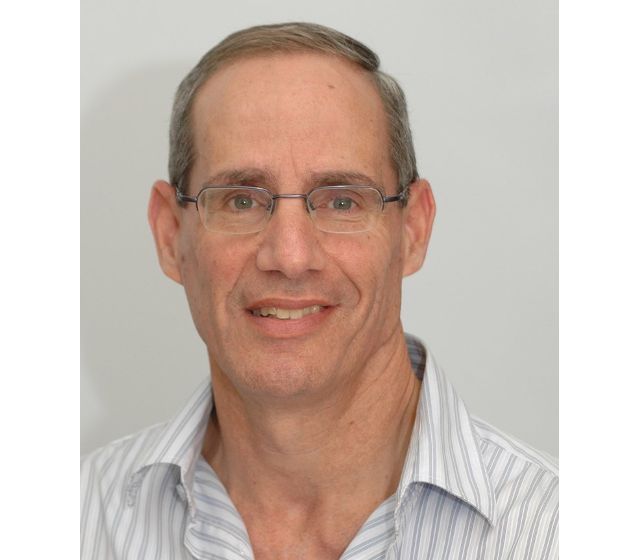
Prof. Noga Alon
Professor of Mathematics at Princeton University and Baumritter Professor Emeritus of Mathematics and Computer Science at Tel Aviv University
List Coloring
MU Seminar SeriesLecture Description
The list chromatic number of a graph G is the minimum k so that for every assignment of a list of k colors to any vertex of G there is a vertex coloring assigning to each vertex a color from its list so that adjacent vertices get distinct colors. This notion was introduced by Vizing and by Erdős, Rubin and Taylor in the late 70s and its study combines combinatorial, probabilistic and algebraic techniques. Its natural extension to hypergraphs is closely related to questions in Euclidean Ramsey Theory. I will discuss several old and new problems and results in the area focusing on a recent work with Briceno, Chandgotia, Magazinov and Spinka motivated by questions in statistical physics regarding vertex colorings of the d-dimensional lattice.
-
27. 11. 2019, 16:30, Governor's Palace, Baroque Hall (Moravské náměstí 1a, Brno)
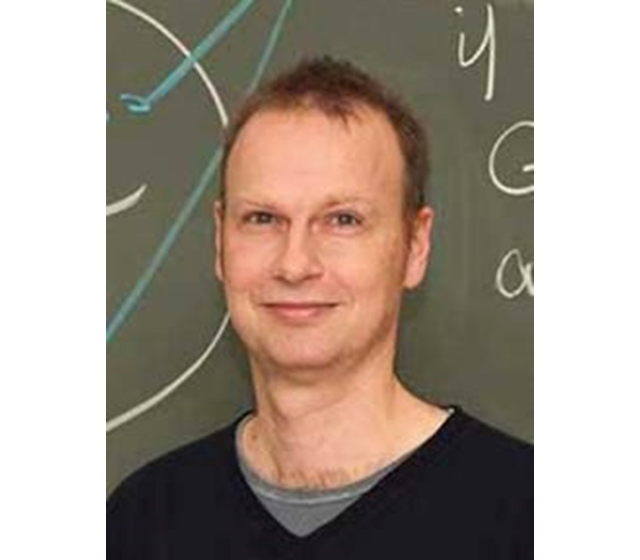
Prof. Martin Grohe
Chair in Logic and the Theory of Discrete Systems, RWTH Aachen University, Germany
ACM Fellow since 2018Symmetry and Similarity
MU Seminar SeriesLecture Description
Symmetry is a fundamental concept in mathematics, the sciences, and beyond. Understanding symmetries is often crucial for understanding structures. In computer science, we are mainly interested in the symmetries of combinatorial structures. Computing the symmetries of such a structure is essentially the same as deciding whether two structures are the same ("isomorphic"). Algorithmically, this is a difficult task that has received a lot of attention since the early days of computing. It is a major open problem in theoretical computer science to determine the precise computational complexity of this "Graph Isomorphism Problem".
One of the earliest applications of isomorphism testing was in chemistry, more precisely chemical information systems. Today, applications of isomorphism testing and symmetry detection are ubiquitous in computing. Prominent examples appear in optimisation, malware detection, and machine learning. However, in many of these applications, we only need to decide if two structures are sufficiently similar, rather than exactly the same. It turns out that determining how similar two structures are is an even harder computational problem than deciding whether they are isomorphic. My talk will be an introduction to algorithmic aspects of symmetry and similarity, ranging from the fundamental complexity theoretic "Graph Isomorphism Problem" to applications in optimisation and machine learning. -
9. 10. 2019, 16:30, Mendel Museum, Refectory of Augustinian Abbey (Mendlovo nám. 1a, Brno)
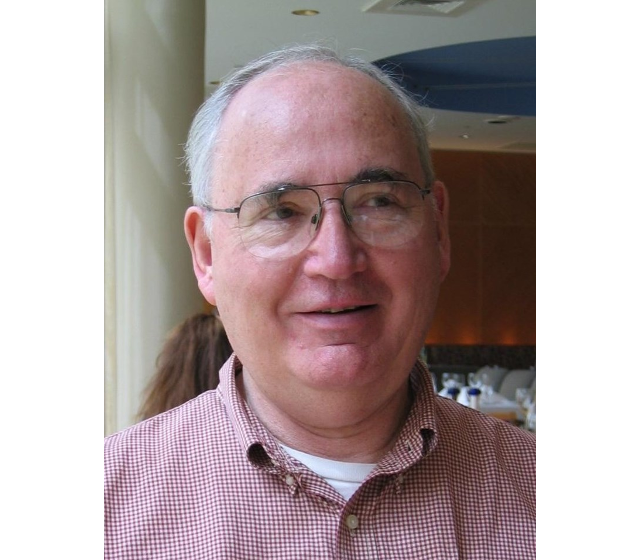
Prof. Dana Stewart Scott
Emeritus Hillman University Professor of Computer Science, Philosophy, and Mathematical Logic at Carnegie Mellon University
Holder of the ACM Turing Award 1976Enumeration Operators, Probability, Type Theory
MU Seminar SeriesLecture Description
For a long time it has been known that enumeration operators on the the powerset of the integers form a model of the λ-calculus. More recently, the speaker realized that well-known methods allow for the adjunction of random variables to the model. Also other well-known ideas can expend the basic model into a model for Martin-Löf type theory. Some recent work with a group of collaborators combines the two approaches by invoking Boolean-valued models. The talk will address the question of how to give this natural modeling interesting applications.
-
8. 10. 2019, 14:00, D1
Prof. Donald E. Knuth
Professor emeritus at Stanford University and holder of the ACM Turing Award 1974.
Honorary Doctor of Masaryk University since 1996Computer Programming as Art – Views and responses to any related question and comments
Lecture Description
Come with prepared questions about Computer Programming for "unprepared" professor Knuth (session inspired by Feynman's "All Questions Answered" talks).
-
24. 9. 2019, 14:00, D2
RNDr. David Šafránek, Ph.D.
FI MU
Computer-Aided Systems Biology
Lecture Description
In this lecture, we will introduce a novel paradigm for solving problems in biology. First, we will describe the framework of systems biology. Second, we will present an original approach to systems biology implemented on fundamental principles developed in computer science. Part of the talk will be dedicated to the comprehensive modelling platform we are developing in our research.
Public talk within a Habilitation procedure
-
23. 4. 2019, 14:00, D2
RNDr. Vojtěch Řehák, Ph.D.
FI MU
What is the best timeout?
Lecture Description
We all have some experience with deadlines, and we know how hard it is to deliver results in time, especially when some obstacles with an uncertain solving time may occur. In this talk, we deal with formalisms suitable for modeling and analysis of such systems, i.e., reflecting both timeouts and actions taking stochastic continuous time. We show how this kind of stochastic timed systems can be modeled and what properties can be computed for such models. On surprisingly small examples we also demonstrate some fundamental limits of such models. Then we will consider that some parts of the model are unknown and we take them as parameters that we would like to synthesize automatically. Finally, we will present results allowing for the synthesis of (epsilon)-optimal timeouts in such systems
Public talk within a Habilitation procedure
-
16. 4. 2019, 14:00, D2
Dr.rer.nat. RNDr. Mgr. Bc. Jan Křetínský, Ph.D.
Technical University of Munich
Machine learning in verification
Lecture Description
On the one hand, formal verification methods provide hard guarantees on analysis results, but do not scale well and are often hard to use. On the other hand, machine learning comes with weak or no guarantees, but scales well and can provide more understandable solutions. In this talk, we show several examples how these approaches can be combined and the best of the two worlds achieved. We demonstrate this on controller synthesis and controller representation in the setting of Markov decision processes and games.
Public talk within a Habilitation procedure
-
26. 3. 2019, 14:00, D2
RNDr. Petr Švenda, Ph.D.
FI MU
Analysis and use of RSA keypair generation bias
Lecture Description
Analysis and use of RSA keypair generation bias The talk will explain the details of recently discovered bias in RSA keys produced by various cryptographic libraries. The bias allows to attribute RSA public key to its origin library and already lead to results with practical security impact: 1) A discovery of factorable keys from smartcards (so-called ROCA vulnerability), 2) a revelation of cryptographic keys supposedly generated on-chip while actually generated outside and only later injected and 3) a first direct measurement of cryptographic smartcard popularity in Internet-wide datasets. The reason for the bias presence steaming from the prime generation algorithms will be explained with typical usage scenarios for accurate key origin attribution. The talk will also cover ongoing research and open research directions.
Public talk within a Habilitation procedure
-
19. 3. 2019, 14:00, D2
RNDr. Radek Ošlejšek, Ph.D.
FI MU
Semantic data modeling – conceptual view
Lecture Description
In this talk, I will explain the principles of semantic modeling. I will briefly compare popular data models, such as rational vs. NoSQL databases. Then, I will focus on graph ontologies. I will describe their features, the problem of abstraction, information levels (e.g., upper vs. domain ontologies), and other aspects that are important for semantic modeling. The discussion will be supported by practical examples that emerged in our research of the semantic modeling of image content. Examples from the cybersecurity domain will, in turn, demonstrate the abilities and limitations of ontologies for detection and mitigation of cyber threats. Possible utilization of ontologies for formal knowledge modeling in hands-on cybersecurity training will be presented as well.
Public talk within a Habilitation procedure
2018
-
9. 11. 2018, 9:00, Mendel Museum, Refectory of Augustinian Abbey (Mendlovo nám. 1a, Brno)

Prof. Anuj Dawar
Professor of Logic and Algorithms at the University of Cambridge
Fellow of the Alan Turing Institute in LondonThe Limits of Symmetric Computation
MU Seminar SeriesLecture Description
The most famous open problem in theoretical computer science, known as the P vs. NP problem challenges us to prove that for some natural search problems, no efficient algorithm is possible. At the moment, we have no idea how to prove such a statement. In order to make meaningful progress, we can restrict the class of algorithms we consider and show that, within these restrictions, no efficient algorithm exists. In this talk, I consider a natural restriction to symmetric algorithms. I explain how symmetries arise naturally in computational problems and why algorithms that respect these symmetries have inherent limitations. Many of our most powerful algorithmic techniques are symmetry-preserving, while others are not. Exploring these limits offers a rich research agenda combining logic, algebra and combinatorics with algorithms.
-
10. 10. 2018, 16:00, Mendel Museum, Refectory of Augustinian Abbey (Mendlovo nám. 1a, Brno)
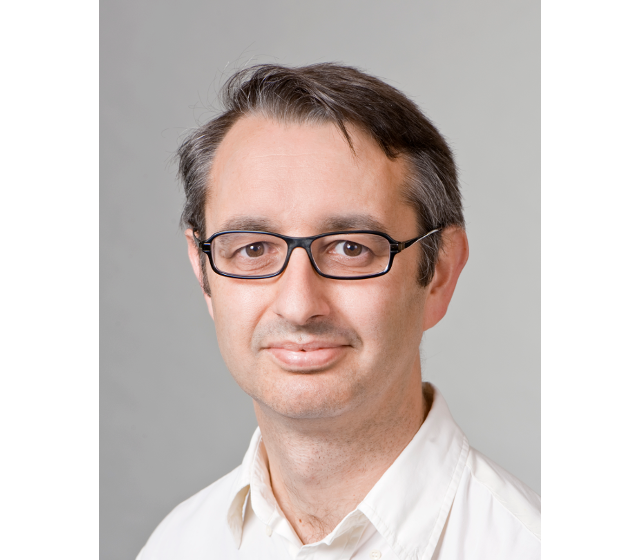
Prof. Javier Esparza
Faculty of Computer Science, Technische Universität München, Germany.
Black Ninjas in the Dark: Analyzing Population Protocols
MU Seminar SeriesLecture Description
Population protocols are a mathematical model of distributed computation introduced by Angluin et al. in 2004. The original purpose of Angluin et al. was the theoretical study of systems consisting of identical, cheap mobile devices with tiny computational resources, like sensor networks. However, since its introduction the model has also been used to analyze the behaviour of chemical systems and of people in social networks. Population protocols help us to pose and study many fundamental questions about distributed systems: What can be computed by agents wishing to remain anonymous? Are leader processes necessary for optimal speed? Can macroscopic "phase transitions" be "programmed" at microscopic level? Is it possible to check automatically that a protocol works correctly? Is it possible to automatically synthesize a protocol for a given task? In the talk I will introduce the population protocol model with the help of several examples. More precisely, I will present the problem of the Black Ninjas in the Dark, and the different solutions given to it by their Senseis. I will also show animated simulations of some protocols.
-
22. 5. 2018, 14:00, D2
Mouzhi Ge, Ph.D.
FI MU
Recommender System Research in E-Commerce
Lecture Description
Over the last decade, recommender systems have been widely applied in e-commerce, for example, video recommendations in Youtube, book recommendation on Amazon, and movie recommendation on Netflix. Recommender systems are developed to help users find relevant products that may interest them. The goal of recommender systems is to reduce the information overload and provide personalized recommendations for users. In this talk, I will discuss the state-of-the-art research of recommender system in E-Commerce, which includes rationale and algorithms inside the recommender black box, important features and evaluations in recommender systems. Finally, a real-world food recommender system project in E-Commerce will be described and demonstrated to show how to construct and evaluate the recommender system in practice, as well as possible challenges that are related to the food recommender systems.
Public talk within a Habilitation procedure
-
27. 3. 2018, 14:00, D2
Ing. Vlad Popovici, M.Sc., Ph.D.
Faculty of Science MU
Case studies in multimodal biomarker discovery
Lecture Description
High throughput genomic revolution started almost twenty years ago with the first in-house printed DNA chips. Since then, various technologies evolved, allowing the interrogation of the whole (human) genome, proteome, metabolome, etc., all producing large amounts of data. Bioinformatics tools and methods evolved to account for all these data modalities with the current bottleneck being the integration of these perspectives into a more comprehensive picture. In parallel and completely independent of bioinformatics, digital pathology also witnessed significant advances fuelled mostly by technological developments: slide scanners and computational infrastructure. However, both “classical” bioinformatics and digital pathology/bioimaging are often used to investigate the same biological phenomenon. It is, therefore, natural to attempt to combine these two seemingly incompatible fields with the hope of unveiling new connections between them. In this talk we will look at three examples of jointly mining the transcriptome and the histopathology images in the context of breast and colon cancers. We will also discuss the computational challenges one faces when working with these data.
Public talk within a Habilitation procedure
-
16. 2. 2018, 11:00, D3
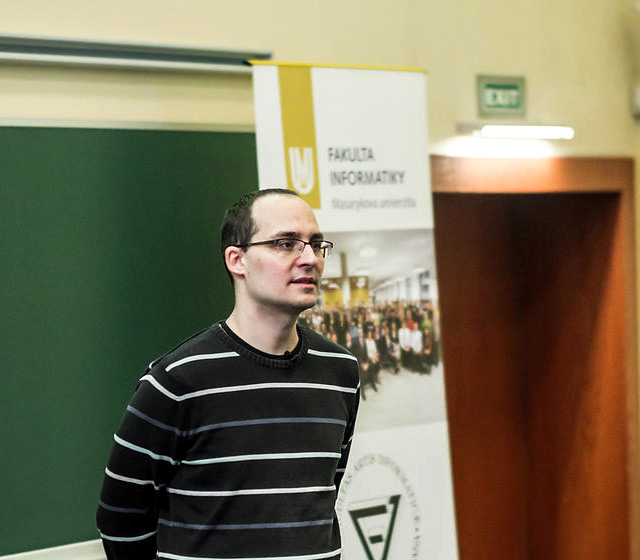
Prof. Daniel Kráľ
University of Warwick, UK
Models of Large Networks
Lecture Description
A graph is a mathematical model of a network of nodes, which can be, e.g., a computer network or a social network. Problems concerning networks of enormous sizes, which more and more often arise in computer science applications, led to a need to find new mathematical tools to represent and analyze large graphs. The theory of graph limits, whose foundations were laid at Microsoft Research about a decade ago, has responded to these challenges by developing analytic models of large graphs.
We will provide a brief self-contained introduction to the theory of graph limits, which will be followed by the exposition of the most major lines of research. We will conclude with presenting solutions of some of the most significant open problems in the area.
2017
-
10. 11. 2017, 9:00, Mendel Museum, Refectory of Augustinian Abbey (Mendlovo nám. 1a, Brno)
Prof. Juraj Hromkovič
Department of Computer Science, ETH Zurich
Teaching mathematics and computer science as research instruments
Lecture Description
We view mathematics as a language that was and is developed in order to describe what is describable in an unambiguous way (everybody mastering this language interprets each sentence in the same way) and in order to have a language in which the correctness of each argumentation is verifiable. Together with experiments mathematics became the main research instrument for discovering our world. In this talk we present the history of the development of mathematics and computer science in a concise way and recognize that the main contributions of science are not in discovering facts, but in introducing new concepts that increase the power of our research instruments. Finally, we discuss why and how we have to change our education in mathematics and science that is still living in a more than 100 years old world of technical revolution. The main idea is based on moving from teaching long time optimized and finalized products of scientific work as facts, relationships and methods to teaching the processes of the development of research instruments and of making discoveries. The main goal is to force the intellectual growth of young people, to motivate them to strive to understand and to be creative.
MU Seminar Series
-
3. 10. 2017, 14:00, D2
Mgr. Jan Obdržálek, Ph.D.
FI MU
Digraph Width Measures
Lecture Description
Treewidth, defined by Robertson and Seymour, proved to be an extremely successful graph parameter. Intuitively, it measures how much tree-like a given graph is. Many problems which are NP-hard on general graphs become tractable on graphs of low treewidth. However treewidth quickly hits its limits once we try to apply it to directed graphs. Directed acyclic graphs (DAGs), on which many problems have simple efficient algorithms, can have arbitrarily high treewidth. Naturally one can ask whether there is a digraph width measure with all the nice properties of treewidth. In this talk we first quickly survey some of the known digraph width measures, and then try to answer the question whether there indeed is a good directed counterpart to treewidth.
Public talk within a Habilitation procedure
-
2. 5. 2017, 14:00, D2
Ing. RNDr. Barbora Bühnová, Ph.D.
FI MU
Quality-Driven Software Architecture Design
Lecture Description
Software architecture design is one of the key activities in any software engineering process. The decisions made during software architecture design have significant implications for economic and quality goals related to the developed software product. To better guide the software architect along the design process and prevent an evaluation of an enormous number of design alternatives, various architectural tactics have been introduced. Generally, these tactics are designed to improve a specific quality attribute, but often declare an additional cost in terms of degrading the architecture with respect to other quality attributes. It is the task of the software architect to evaluate various solutions and determine a good trade-off between all existing quality and cost goals. In this lecture, we discuss the concepts that make up the field of quality-driven software architecture design. We will focus on the basics, best practices, as well as the challenges that are currently studied by the research community.
Public talk within a Habilitation procedure